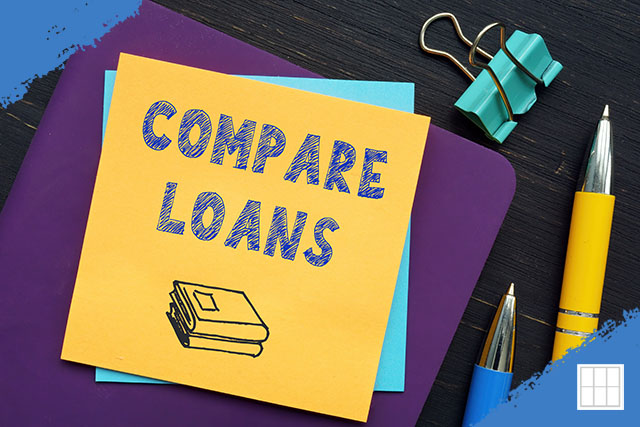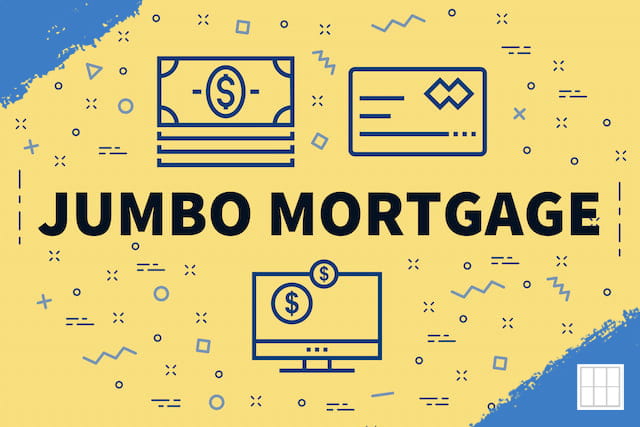A jumbo loan is a mortgage above the conforming loan limit, which Fannie Mae and…

Jumbo vs. Conventional Loans: Understanding the Key Differences
When it comes to financing a home, borrowers often have to decide between jumbo and conventional loans. Both options have their merits, but understanding the key differences can help borrowers make an informed decision that aligns with their financial goals and circumstances. In this comprehensive article, we will explore jumbo vs. conventional loans, including interest rates, loan limits, eligibility criteria, and other crucial factors.
Loan Size and Limits:
One of the fundamental distinctions between jumbo and conventional loans lies in the loan size. Conventional loans are mortgages that conform to the guidelines set by government-sponsored enterprises like Fannie Mae and Freddie Mac. These loans typically have loan limits set annually by these entities. On the other hand, jumbo loans exceed these limits, catering to borrowers seeking higher-priced properties in more expensive housing markets.
Interest Rates:
Interest rates play a crucial role in determining the affordability of a mortgage. Generally, jumbo loans tend to have slightly higher interest rates compared to conventional loans. The increased risk associated with larger loan amounts and the absence of government backing contribute to this discrepancy. However, it’s important to note that interest rates can vary depending on various factors such as credit score, down payment, and lender policies.
Down Payment Requirements:
Conventional loans often offer more flexibility when it comes to down payment requirements. Borrowers may be able to secure a conventional loan with as little as a 3% to 5% down payment, depending on their creditworthiness. Jumbo loans, on the other hand, typically require a higher down payment percentage, often ranging from 10% to 30%, to mitigate the lender’s risk associated with larger loan amounts.
Eligibility Criteria:
Meeting the eligibility criteria is crucial for securing any mortgage. Conventional loans have standardized eligibility requirements established by Fannie Mae and Freddie Mac, focusing on factors such as credit score, debt-to-income ratio, employment history, and property appraisal. Jumbo loans, however, usually have stricter criteria due to their larger size and increased risk. Borrowers typically need a higher credit score, lower debt-to-income ratio, and more substantial financial reserves to qualify.
Additional Factors to Consider:
Beyond interest rates, loan limits, and eligibility criteria, there are other important factors to keep in mind when comparing jumbo and conventional loans. These include:
a. Mortgage Insurance: Conventional loans may require private mortgage insurance (PMI) if the down payment is less than 20%. Jumbo loans often don’t require PMI but might have alternative insurance or risk management options.
b. Property Types: Conventional loans are generally suitable for a wide range of residential properties, including single-family homes, condominiums, and multi-unit properties. Jumbo loans may have more restrictions and limitations when it comes to property types.
c. Closing Costs: Both jumbo and conventional loans entail closing costs, which include fees for appraisals, inspections, title insurance, and more. These costs can vary depending on the loan amount, location, and lender policies.
d. Financial Goals: Consider your long-term financial goals when choosing between jumbo and conventional loans. Factors such as the length of time you plan to stay in the property, your income stability, and your overall financial situation should all be taken into account.
Conclusion: Jumbo vs. Conventional
Jumbo vs. conventional loans requires careful consideration of the loan size, interest rates, down payment requirements, eligibility criteria, and various other factors. By understanding these differences, borrowers can make an informed decision that aligns with their financial goals and circumstances. Remember, it’s crucial to consult with mortgage professionals and lenders to explore all available options and select the loan that best suits your needs.

